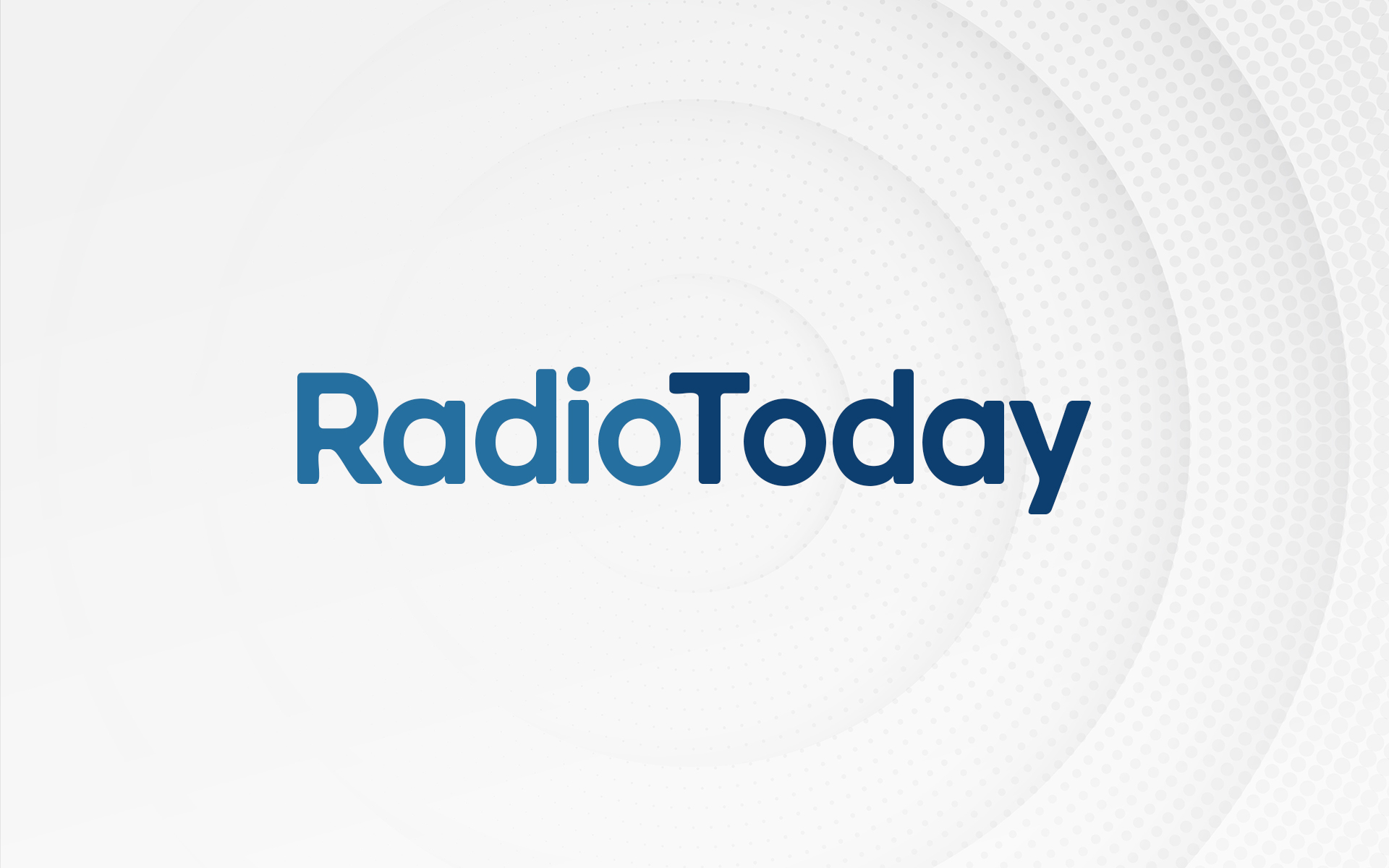
The Amazing Paul Campbell
Amazing Radio is one of the newest stations on your digital dial.
First impressions might suggest it's run by an over-enthusiastic Geordie drummer, but don’t be fooled. Amazing founder Paul Campbell’s passion for radio started in the 70’s and he has an extensive media CV.
Having started in BBC Local Radio while still a student at Oxford, he became a BBC General Trainee and Radio 4 Producer before slipping into the dark zone as a TV Producer. Entrepreneurial instinct led him to freelance, mostly for Channel 4, then to start his own TV and radio production company, which jumped onto new media at its infancy.
Success at dotcom time gave Paul the chance (and cash) to escape the smog of London, return to his native Northeast and co-found the TV company that makes 'Grumpy Old Men', then pour all his experience into the Amazing Group. Initially an e-learning business (and the first company in the world to use podcasts in education), Paul used his background as a working musician to launch Amazing Tunes in 2005 and Amazing Radio in 2009 – he describes its launch as one of the happiest days of his life, returning to the medium he’s always loved.
RadioToday caught up with Paul to ask him about his Amazing company:
[b]Paul, what’s Amazing Radio about and why is it so Amazing?[/b]
Amazing Radio is about turning many of the conventions of broadcasting upside down. We only play new music from unsigned artists, the playlist is chosen by the listeners, we don't have conventional DJs (most of our presenters are brand new to professional radio) and we're not based in London. We're really taking many of the concepts of Web 2.0, particularly the democratising effect of social networking, and applying them to radio.
It's part of a bigger business, which is trying to do similarly innovative things for the music industry, driven by a strong desire to reinvent the music industry by offering a fair deal for musicians for the first time in history. This motivates music fans to pay for music, not to steal it.
It's not my job to say if that's amazing – the audience will decide that. It's certainly audacious.
[b]What audience are you targeting – or are you not too bothered about conventional ‘target audiences’?[/b]
We're not much into conventional targeting. We just want to do our thing and see who likes it.
When we launched on June 1st 2009, we thought that would probably mean younger music obsessives. It's turned out to be very much broader than that. The core audience is indeed young, but my feeling is that the audience range is extensive and they're clearly drawn to us for things they can't stand about other radio stations – the absence of pop and prattle, the freshness of the music, the lack of repetitiveness. They fall across it, are grabbed by how unusual and different it is, then stay.
It's stunning how fast they 'get' the concept and the responses are mind-blowing – I know people love radio in a way that's different from other media, but they seem to love Amazing in a way that's different from normal radio. There's a sense of ownership and belonging I've never seen before.
[b]You’re broadcasting on DAB, playing music nobody has ever heard before. How does your business model allow Amazing Radio to continue and grow?[/b]
You won't understand Amazing Radio if you approach it with the commercial mindset of conventional radio, or if you look at it in isolation. Amazing Radio is not the start and end of our business model, as is usually the case in commercial radio. It's really a service for amazingtunes.com, the core of our business. It’s like iTunes for unsigned artists with an ethical approach.
Amazing Radio gives amazingtunes.com a USP – so musicians can get onto a genuine radio station. We weren't worried about the allegedly limited reach of DAB compared with FM, it’s still proper radio and the most cost effective way to reach a national audience, so the USP still works. Listeners are encouraged to become registered users online, by buying the music or choosing the playlist. That transition increases their value, so you could define Amazing Radio as a 24×7 national marketing channel, which also happens to be a profit centre. It's old media serving new media – the reverse of the norm.
The overall business – by which I mean the old media/new media mix – is based on advertising, sponsorship and download sales, plus various other music-related revenue streams. It's a scalable concept: once we've proven it works in the UK, we plan to launch Amazing Radio globally. That's how it grows. It's not about a radio station. It's about changing how old and new media inter-relate, in an ethical context.
[b]PRS registered artists are excluded from the station and you’ve described their systems as being ‘out of the ark’. What’s PRS doing wrong?[/b]
In principle, PRS is doing nothing wrong. It exists to give musicians a fair deal – which is identical to our approach. Unfortunately it was conceived in the old music industry model and it hasn't moved with the times, which has led to two problems. Unless and until these problems are fixed, we have to stay outside PRS.
Firstly, their online licence insists on taking a percentage of ALL our revenue, not just revenue deriving from PRS members. If we agreed to that, it would mean we took money away from musicians who were not PRS members in order to give it to PRS. That would be immoral.
Secondly, their radio licensing isn't clever enough. It seems ideally suited to the days of biros and carbon paper, but nowadays we have things called computers. If we played PRS members' music on Amazing Radio, we could literally tell PRS everything about that usage, down to their member's home address… but PRS wouldn't know what to do with the information. So we would pay them money that they will stick in their big bucket, then distribute to the wrong person.
It hadn't been part of our plan to be anti-PRS. I still hope they'll change their processes and get with the times, so we could remove the consequential ban on PRS members. It may help them stem some of the hatred towards them that I’ve picked up from conversations with senior people in broadcasting and from listeners, who can listen to Amazing Radio without a PRS licence.
[b]What role do you feel the BBC should have in exposing new music and unsigned artists?[/b]
Ah yes, the BBC Introducing question, the one that revealed me as a BBC-hater. (Not).
I think the BBC should continue its glorious tradition of encouraging new music and unsigned artists – something it's been doing since before any of us were born. I also think it should stop its inglorious more recent tradition, of making it impossible for anyone to grow a private sector media business in the UK.
There is a process to ensure the BBC's innovation is tempered by an awareness of the commercial impact of its activities. When a new service is launched, or an existing one materially expanded, it's supposed to ask the Trust's permission, and the Trust is supposed to do a market impact test. BBC Introducing is a massive expansion, extension and automation of the BBC's dealings with new musicians, but it hasn't been through that process. That's wrong.
Imagine Marconi had come before Edison, instead of the other way round. Imagine the howls of outrage from fledgling start-ups called HMV and EMI, as the lavishly-funded BBC accidentally put them out of business by developing its own A&R department. That's effectively what's happening now.
This is not scare-mongering. The musical world is changing completely. The BBC should work with the new music industry, as it always has with the old one. It should not absent-mindedly create a new music industry of its own. It should continue to expose new music and unsigned artists, aware of the commercial impact of its activities… but follow its own rules.
[b]What’s your plan for the next year and where do you see the station in five years?[/b]
Next week, we'll launch our presenters, who range from the awesome and omniscient Trevor Dann, to the 18 year-old Frankie Ward, who is both of those things and a lot more too. And we just got the keys to what used to be called Century House, our new home by the Tyne Bridge. We'll be broadcasting from there, as soon as we work out how to switch everything on
In 2010 we plan massively to grow the online audience for AmazingTunes.com, especially in the States (which we're now targeting), to launch Amazing Radio overseas, grow our UK listener base, gain wider recognition as an innovative and ethical brand, and break even
In five years I hope amazing will have transformed opportunities for creative people to make money from their talent, on a global stage. In the process we hope to turn the word 'amazing' into a household name, a global challenger brand representing innovation and an ethical approach. It's kind of like a new Virgin for the 21st century.
I hope Amazing Radio will be established as not one but several networks, all of them offering a democratic and innovative approach to creative content that gets people as excited about listening to the radio as some people clearly already are by what we've done so far.
The RADIO Interview was written by Scott Myers exclusively for RadioToday.co.uk


